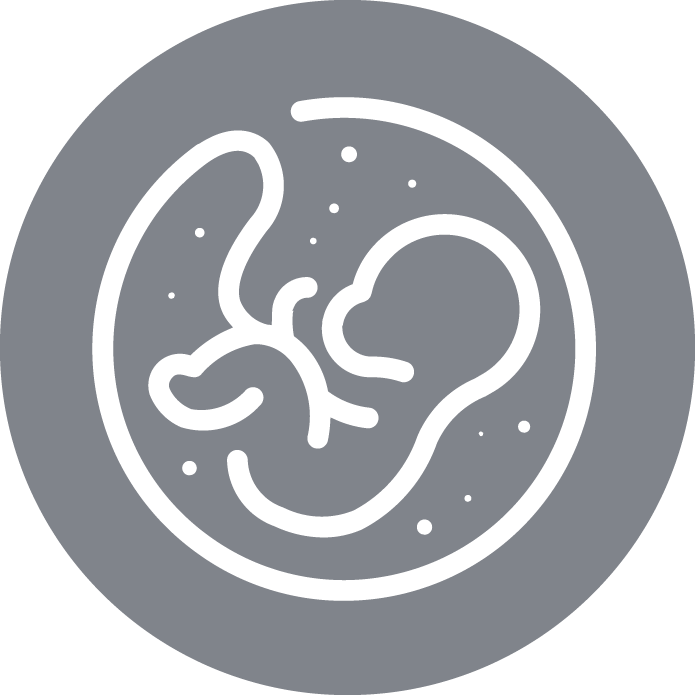Fertility Preservation in Oncology Patients
Cancer can originate anywhere in the body and comprises many types. It is basically characterized by abnormal cell growth that invades and colonizes in other areas of the body.

According to data from the International Agency for Research on Cancer (IARC, 2008), the cancer with the highest incidence in women in our country is breast cancer with 28.5% being the cause of death in 16.7% of cases (WHO, 2014). Survival due to this type of tumor has been improving year after year, which makes it clear that women are considering situations such as the possibility of becoming mothers after cancer treatment.
Is motherhood feasible after cancer treatment?
There are different factors that can compromise fertility after cancer therapy. The gonads may need to be removed or the tumor itself may have damaged them. In addition, both chemotherapy and radiation therapy can have a harmful effect on the ovarian reserve of these women. Some patients will regain fertility while others will suffer early ovarian failure or FOP.
What factors cause the patient to become fertile again?
Basically, there are six factors:
- Age: the ovarian reserve depends on the patient´s age
- Ovarian reserve: concerns the number of remaining oocytes in the ovary. It is related to age but can be affected by other factors.
- Type of cancer
- Type of chemotherapy: some chemotherapy treatments such as those containing alkylating agents damage the primary follicles and involve a high risk of PFO.
- The need to use radiotherapy: radiotherapy involves a dosage-dependent reduction of the primary follicles and can occur both directly and indirectly.
- Dose: the effect of the dose will depend on the age of the woman, being more pronounced in older patients.
Should cancer patients consider preserving their fertility?
Undoubtedly. Being diagnosed with cancer is a very complicated situation, but with a high probability of survival in most cases, so a woman's possible reproductive desires should be assured at all times.

At the time of diagnosis, the decision to preserve fertility should be considered in close collaboration with the specialist who will be treating the patient, and various factors should be taken into account:
- Risk of sterility: we must know the type of treatment to which the patient is going to be submitted, as well as her age and ovarian reserve.
- Prognosis: the chances of survival are key when deciding to subject a woman to this type of fertility preservation treatment.
- Risk if we delay the start of cancer treatment: some cancers require immediate treatment, so ovarian stimulation cannot be performed.
- Risk of hormonal treatments: some cancers grow by the action of hormones and ovarian stimulation would be inadvisable
In the event that the patient may be a candidate for fertility preservation, we must know how to choose the best option.
What types of techniques can be used to preserve a woman's fertility?
- Ovariopexy: consists of moving the ovaries out of the radiation field
- Oocyte vitrification: requires ovarian stimulation and delaying the start of treatment by 4 to 6 weeks
- Embryo vitrification: requires ovarian stimulation and delaying the start of treatment from 4 to 6 weeks. It compromises the destiny of that "fertility", since the paternal contribution is also preserved.
- Cryopreservation of the ovarian cortex: this is an experimental technique that consists of extracting ovarian tissue in order to re-implant it after gonad toxic treatment. It is ideal for hormone-dependent cancers, when treatment cannot be postponed or in pre-pubertal patients.
What other techniques are being researched?
- Gonadal medical protection: based on the experimental use of GnRH agonists (aGnRH) that could have a protective action on the follicles.
- In vitro activation, growth and maturation of dormant follicles: activation of the growth of primordial follicles to be isolated and matured in vitro for later assisted reproduction treatment

What is our role in this field?
As professionals in Human Reproduction, we must know the effects of these gonad toxic treatments and know how to advise our patients in one of the most difficult moments of their lives. To do this, adequate training is essential to know all the options, as well as their benefits and limitations.

Hospital La Fe in Valencia, one of IVI RMA's collaborating centers, is considered a benchmark unit as it offers the best results worldwide. The Valencian Fertility Preservation Program not only provides service to the Valencian Community but also to other regions such as Murcia, Castilla La Mancha, Cantabria, Navarra, the Basque Country, Madrid and Andalusia.
This collaboration allows us to be pioneers in research related to the recovery of ovarian and endometrial function, having recently been awarded a Prometeo financial aid granted only to research groups of excellence.
Would you like to learn more about fertility preservation from our experts?
- Online Course on Sterility
- Online Course on CryobiologyCancer can originate in any part of the body and includes many types.
- Online Course on Stem Cells
- Official Master in Biotechnology of Assisted Human Reproduction
- Official Master in Biology and Technology applied to Assisted Human Reproduction
- Master's Degree on Theoretical Basis and Laboratory Procedure in Assisted Reproduction
- Personalized training



